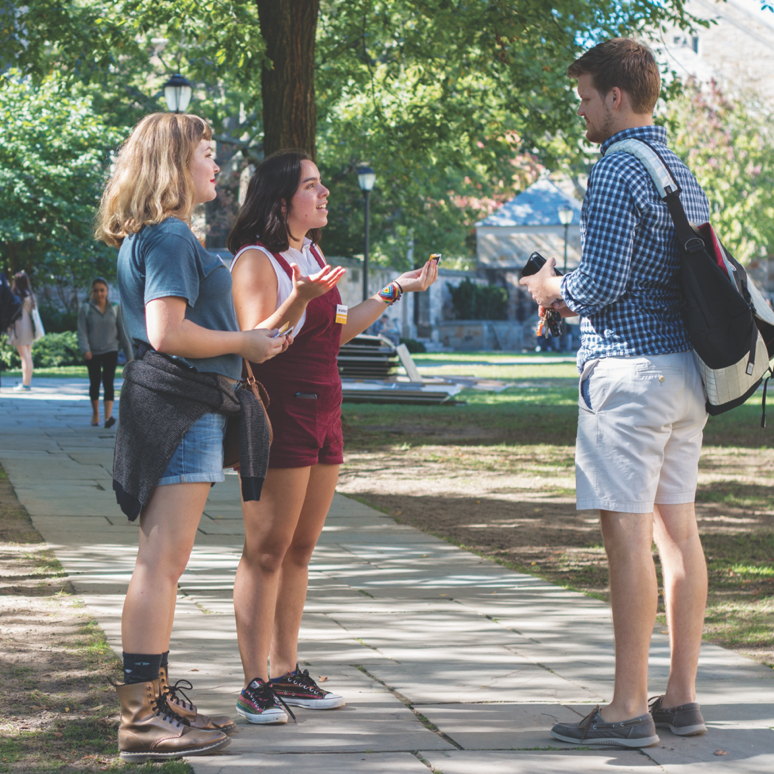
Students Unite Now, a campus activist group advocating for the elimination of the student-effort expectation, took its cause to Cross Campus for a photo campaign and protest Thursday afternoon.
Over the past two weeks, the organization has managed to obtain 1187 signatures from the student body in support of the full elimination of the student effort, a yearly sum that students on financial aid must contribute to their educations. Participants in the rally wrote messages to University President Peter Salovey denouncing the term-time portion of the requirement and took photos in front of a wall of signatures while holding their messages.
“We are having this event today because we saw that there was a consensus in the Yale community,” said Isadora Milanez ’18, a SUN coordinator. She added that SUN’s primary tool for campaigning is story-telling, through which people share their own experiences associated with the student effort and managing personal finances.
This academic year, the student effort was set at $5,950 for most students, down $450 from last year. Students are expected to work jobs during the semester and the summertime to fulfill the requirement.
SUN also distributed buttons at the rally that read “We Contribute” at various dining halls during breakfast and lunch. According to the event description on SUN’s Facebook page, the goal of the rally was to request a meeting with Salovey to discuss the student effort.
Dean of Undergraduate Admissions Jeremiah Quinlan said the decrease in the student effort this year was largely in response to conversations with students and the results derived from the analysis of years of student employment and debt data.
“Yale does an excellent job making an education affordable for all students and families, but that does not mean there is not room for improvement,” Quinlan said in an email.
As part of last year’s financial-aid reforms, the University also ramped up its startup-funds program, which awards $2,000 to freshmen with high financial need, $1,000 to freshman international students with high financial need, and a $600 allowance for upperclassmen with high financial need.
Advocacy against the effort started gaining momentum in 2015, when SUN organized a protest in front of Woodbridge Hall.
Natalie Rose Schwartz ’18, who participated in the photo campaign, bent her back while holding a message that read “Dear President Salovey, students shouldn’t have to BEND OVER BACKWARDS to attend Yale.”
SUN members interviewed said meeting the student effort has forced them to miss out on opportunities available at Yale, such as college teas, festivals and extracurricular commitments.
Max Green ’19 said he and his family need to take out loans to afford his Yale education, which Yale assured him he would not have to do, he said. Green added that he experienced “socio-economic shock” when he realized he had to work a job on campus.
Tony Scott ’17, who receives financial aid from Yale, said he has no time for a part-time job because he has to focus on research, which he said was important for getting into graduate school.
“In practice, I don’t think [the student effort] works out because the parents who are paying some part of the tuition end up covering the student contribution too,” Paul Banegura ’20 said. “There’s a group of students who are able to live Yale while there are some trying very hard just to live at Yale.”
Director of Financial Aid Caesar Storlazzi said Yale’s financial aid policy is based on a partnership between students, parents and the University.
“Yale is committed to the idea that all qualified students should have access to a Yale education and to that end, Yale continually reviews its financial-aid policies, not only at the College, but at all of the University’s graduate and professional schools as well,” Storlazzi said.
The estimated cost of attendance for a Yale undergraduate in 2016–2017 is $68,175, which includes room, board, as well as books and personal expenses.







